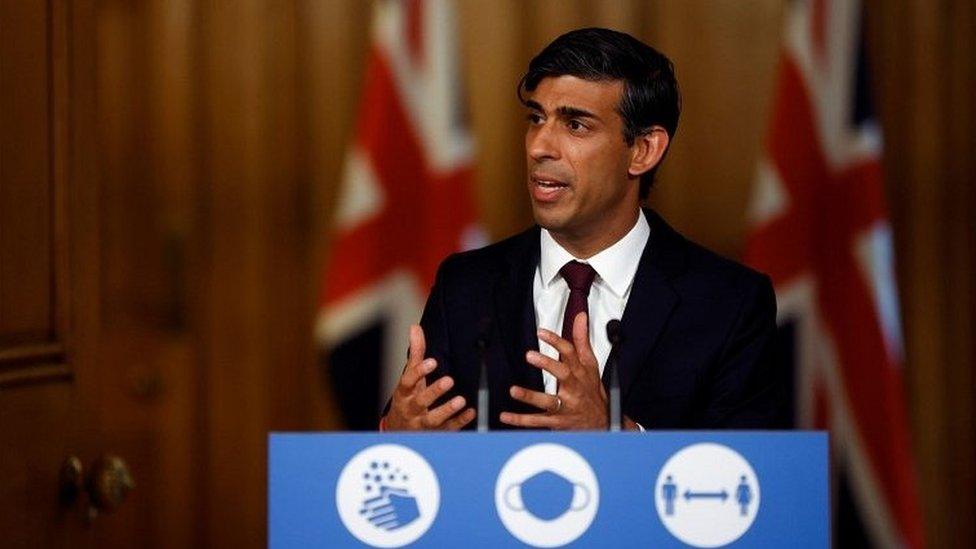No hiding now - for Sunak or businesses
- Published

There's a new acronym to add to Whitehall's alphabet soup of projects designed to soothe the harsh impacts of coronavirus.
After CBILS, JRS (and many more) comes JSS - the Job Support Scheme - another policy put together by Chancellor Rishi Sunak.
It follows many weeks of calls for a replacement for furlough - the eye-wateringly expensive support system that saw a Tory chancellor decide to use public money to pay the wages of millions of people to prevent economic disaster.
Mr Sunak was always determined to resist demands just to extend the scheme, or Labour's push for carrying on supporting certain parts of the economy. And he has stuck to that.
Instead, there's a scheme where employers will make the call as to whether or not their firms have a future beyond the pandemic - whether the sums add up to keep going in a time of economic distress in the hope of better times on the other side.
The plan is designed to stop the country waking up to a nightmare of mass unemployment.
In normal times it would be a huge step to take, with potentially a very hefty price tag. But nothing is normal right now.
The government has made a political choice to shrink the support that's been available under furlough. There's no pretence that jobs won't go.
The scheme is quite complicated and employers will be doing their sums to see if it's really worth their while.
While the government took most of the burden under furlough, that's swung back to employers in a big way. And the Treasury won't officially put a number on how many jobs it hopes to save, or how many business will take up the offer.
Vast range
Unofficially there's an estimate in government that between two and five million people are likely to have their incomes topped up.
At the risk of stating the blindingly obvious, that is a vast range. If the scheme is the difference between jobs surviving or not, that spectrum of numbers suggests how little we can predict about the likely scale of unemployment in the months to come.
We know nothing at the moment about how the government proposes to pay the costs of all this in the years to come. But it is likely to be some time, not just months, before the public, or the public services, are asked truly to start to shoulder the costs.
The chancellor said it had been a hard decision to end furlough. It was always in fact his intention to do so, but in this announcement, the Treasury has publicly faced up to the reality that the costs of Covid will not be temporary.
All talk of a "bounce back", a rapid return to something like economic normality, has gone rapidly out of fashion.
It is only four months since the chancellor was reluctant even to admit we were in recession. But with cases on the rise, limits on our lives being rolled back in, there is no hiding now.
- Published1 July 2022

